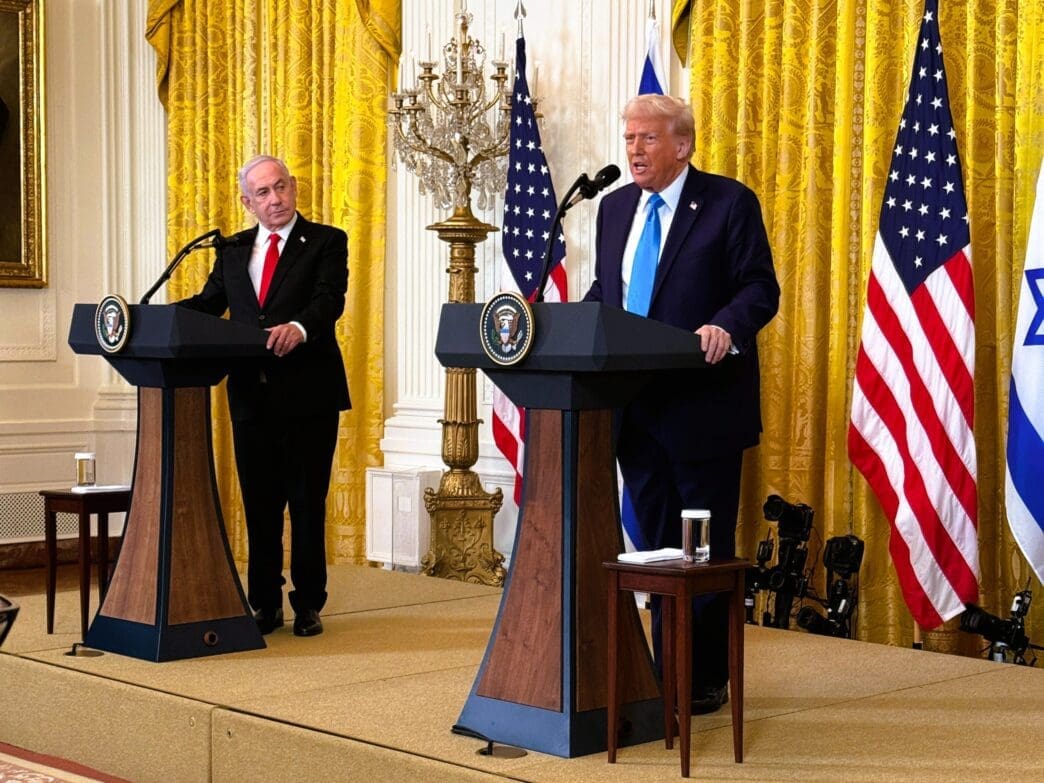In a joint press conference with Israeli Prime Minister Benjamin Netanyahu, U.S. President Donald Trump proposed a bold plan for the Gaza region, suggesting the relocation of Palestinian refugees from Gaza and a potential long-term U.S. involvement in the area.
President Trump offered striking remarks during a press conference alongside Prime Minister Netanyahu, suggesting that the U.S. could take a prolonged role in Gaza, both in terms of military presence and real estate development. He mentioned the possibility of turning Gaza into a coastal paradise and did not rule out deploying U.S. troops to achieve this vision. Trump’s remarks have sparked considerable discussion, particularly concerning the ongoing negotiations to maintain a fragile ceasefire between Israel and Hamas.
These negotiations are crucial for increasing humanitarian and reconstruction supplies for Gaza’s recovery following a lengthy conflict. However, Trump’s idea to relocate approximately 1.8 million Palestinians could significantly disrupt these talks. The framework for these discussions also aims to gain Hamas’s agreement to relinquish its governing position in the territory. Trump’s suggestions about U.S. possession and development of the area, potentially with U.S. military support, are likely to be a major point of contention for the armed group.
Saudi Arabia quickly condemned Trump’s comments, emphasizing their unwavering support for a Palestinian state. This criticism comes amidst Saudi-U.S. negotiations involving diplomatic recognition of Israel. Saudi Arabia firmly rejects any efforts to displace Palestinians, asserting the international community’s duty to alleviate Palestinian suffering.
Hamas also issued a statement rejecting Trump’s comments, viewing them as a recipe for chaos and tension. The prospect of U.S. troops in Gaza seems contradictory to Trump’s “America First” policy, which typically promotes non-involvement in foreign military conflicts. Yet, he expressed an openness to U.S. control of Gaza for its long-term development after relocating its Palestinian residents.
Trump, known for his real estate career, envisions Gaza transformed into a ‘Middle Eastern Riviera’. He described a future where people, primarily Palestinians, live in an international, beautiful environment. Trump’s remarks about visiting Israel and potentially Gaza further underscore his interest in reshaping the region’s dynamics.
During ongoing ceasefire and hostage negotiations, Trump has also shown hesitancy regarding pressure on Iran. Despite having signed a mandate for maximum pressure on Tehran, he voiced a preference for peaceful relations if Iran commits to not developing nuclear weapons. Trump’s statements reflect a potential shift towards negotiating peace rather than escalating tensions with Iran.
Trump’s Gaza proposals follow earlier bold assertions about taking control of other regions like the Panama Canal and Greenland, expanding U.S. influence in unprecedented ways. His statements are met with criticism, such as Senator Chris Murphy’s remark questioning Trump’s judgment and highlighting the potential costs of U.S. involvement in Gaza.
President Trump’s recent remarks on Gaza have sparked widespread debate, highlighting potential geopolitical shifts and deepening tensions in an already volatile region. His unconventional proposals are drawing both domestic and international scrutiny as stakeholders navigate the implications of such profound changes to the Middle East landscape.








